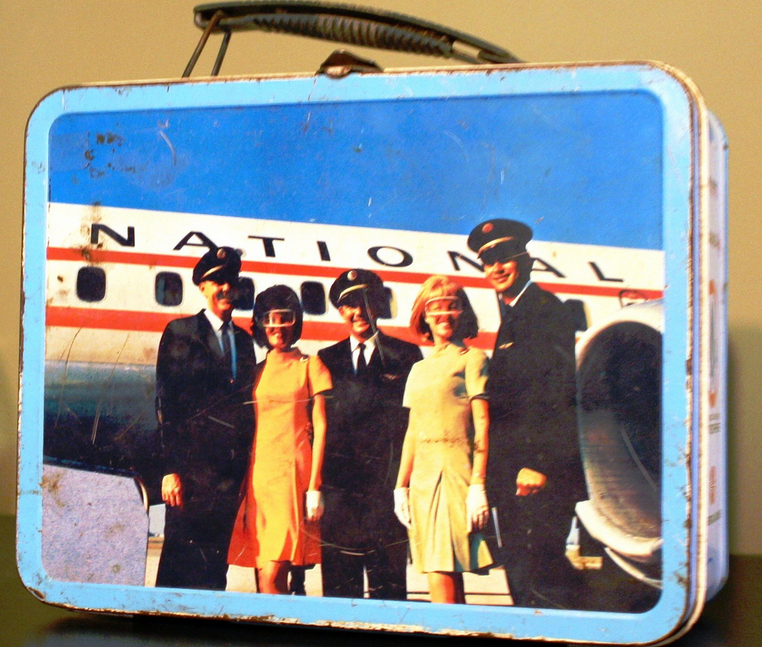The $100 Carry-On Bag Fee & Other Airline Charges You Can Avoid
On the FareCompare Ask Rick blog, Rick Seaney gives examples of four of these avoidable add-on charges — and how you can get around them or at least minimize their cost.
1. Inflated bag fee
It’s bad enough that some bottom-dollar airlines charge travelers for carry-on bags, but many of them also pump that fee up the longer you wait to pay it.
Frontier and Allegiant increase their carry-on charges to $50 if you wait to get to the gate to pay the fee, but the most outrageous example comes from Spirit, which can hit you for up to $100 for paying the fee at the gate.
If you’re going to fly these bottom-dollar airlines, be prepared to be nickel-and-dimed and make sure that you’re including things like carry-on fees when you compare fares against carriers who don’t charge for these bags.
And if you still end up flying with Spirit or its ilk, it’s best to pay the carry-on fee as soon as possible in order to avoid being hit with last-minute charges at the airport.
2. The steep change fee
It would be rad if all travel plans went according to schedule, but we live in an imperfect world where not everything happens exactly the way it’s supposed to. Unfortunately, most airlines don’t give a damn and will often charge you out the rear-end for making a change to your itinerary.
If you’ve booked the standard, non-refundable airfares that most people get, you’re probably going to be stuck paying $200 or so when you’ve got to fly home two days earlier than planned, or you need to extend your stay for a week.
Seaney offers some suggestions on how to minimize this cost, though some of them involve incurring other charges.
• Refundable tickets: These usually cost more than non-refundable tickets, but if you’re heading into a travel situation that may need to be revised on the fly, it might be worth the investment instead of being slammed with fees later.
• Travel insurance: The cost of the insurance varies and it obviously adds to your upfront expenses, but some policies will allow you to get out of change fees. Make sure you read and understand the fine print before you agree to buying the insurance, as not all policies are created equal.
• There’s always Southwest: Currently the only major U.S. carrier with a “no change fee” policy. Again, if you know your travel plans may change after they’ve been locked in, it wouldn’t hurt to check Southwest’s fares.
Federal regulations now give consumers 24 hours from booking a flight to change their minds without being penalized. So if your plans change right after you make them, you still have a brief grace period to revise things.
One tip that may work but isn’t included in Seaney’s post is something I successfully tried a few years back. I had to return from vacation a day early but JetBlue wanted to charge me both the change fee and the difference in airfares between my scheduled return flight and the one I was hoping to book. In total, it would have cost me more than $300. On a whim, I tried a name-your-own-price site (probably Priceline, though I can’t recall with certainty) and was able to get a one-way flight home for significantly less than what it would have cost to revise my JetBlue plans. I still ended up paying money to get home early, but nowhere near what I’d have paid otherwise.
3. The overweight bag fee
A few extra pounds in your checked luggage can result in fees that run upwards of $200 each way for domestic travel and $400 for international, depending on the airline.
If you’re a heavy packer, know your airline’s rules before you travel and weigh your packed bags before you head out to the airport.
It may be cheaper to pay UPS, FedEx or USPS to deliver your heaviest objects to your travel destination.
4. The old-fashioned phone fee
We know that some people still like to talk through the ticket-buying process with another human being. Sadly, this will often cost you $20-25 for the privilege of having someone else type your information into a computer. If you want to save that money, you’ll need to move into the Internet age and reserve your own tickets online.
Want more consumer news? Visit our parent organization, Consumer Reports, for the latest on scams, recalls, and other consumer issues.


